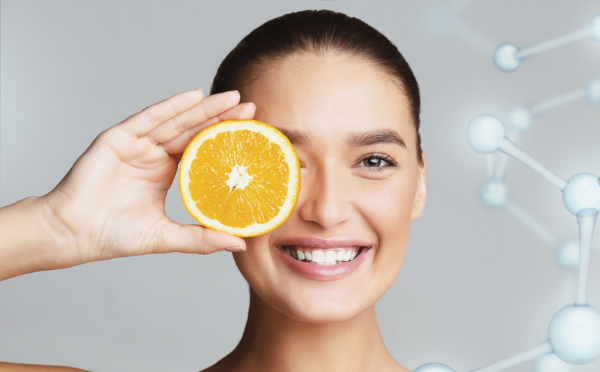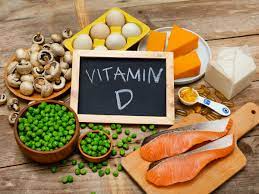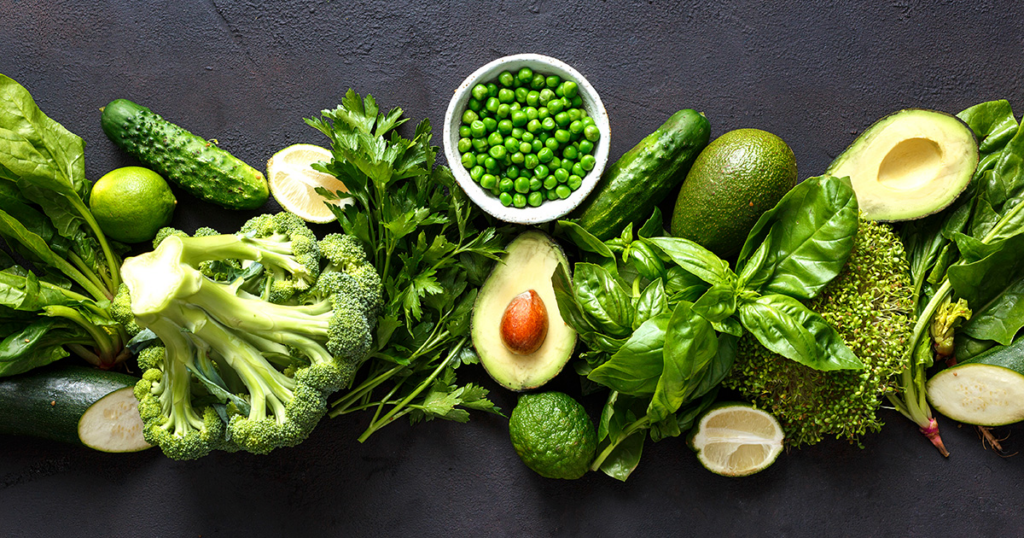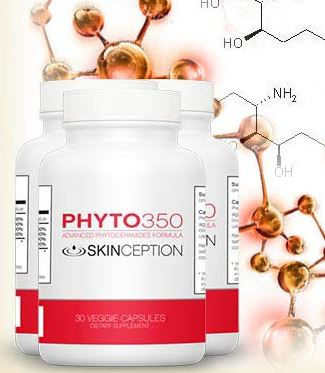Skin is the body’s largest organ. It reflects your overall health and vitality, affecting your appearance, self-esteem, and well-being. Prioritizing skin health goes beyond the quest for a flawless complexion; it’s a vital part of self-care.
This comprehensive guide will dive headfirst into the fascinating world of skin health, revealing vitamins’ potent role in achieving and maintaining that coveted glow. From warding off skin conditions to combating wrinkles, vitamins are the quiet champions of skincare.
We uncover the benefits of the top five vitamins that can naturally improve skin health. Join us as we explore how to safely incorporate these nutrients into your daily routine, from the superstar Vitamin A to the skin soother Vitamin K.
Bid farewell to dull, tired skin and say hello to a more radiant you!
Why Are Vitamins Crucial for Skin Health?
Our skin is subjected to environmental stressors daily, making it more susceptible to damage. Vitamins help bolster our skin’s defenses, nurturing its natural regenerative processes. They act as antioxidants, defending against damage from harmful UV rays and free radicals.
Vitamins support pivotal functions for skin health, such as collagen production and cell regeneration, which help maintain the skin’s strength and elasticity. Vitamins also help provide the nourishment needed to combat various skin issues, from acne to dryness, resulting in more vibrant, glowing skin.
Vitamins are the foundation for healthy, beautiful skin and the building blocks for a radiant and resilient complexion.
#1 Vitamin A: The Skin’s Best Friend
Vitamin A is a fat-soluble vitamin often dubbed the “skin superstar vitamin” and is essential for various bodily functions, including maintaining healthy skin. Vitamin A has two primary forms: Preformed Vitamin A and Provitamin A Carotenoids.
Preformed Vitamin A is found in animal products like liver, while Provitamin A Carotenoids are found in plant-based sources like carrots and spinach. The most common Provitamin A Carotenoid is beta-carotene, which the body can easily convert into active Vitamin A.
Benefits for Skin Health
Vitamin A helps promote skin cell production, repair damaged tissues, and support the skin’s natural barrier function. This vitamin stimulates collagen production, a crucial protein for maintaining the skin’s structure and elasticity. Vitamin A is most well-known for its ability to combat common skin issues like acne, uneven skin tone, and wrinkles.
Food Sources and Supplements
Vitamin A is available in various foods, making it easy to support your skin health.
Here are some animal and plant-based food sources for incorporating Vitamin A into your diet:
- Liver
- Fish
- Dairy Products
- Sweet Potatoes
- Butternut Squash
- Carrots
- Leafy Greens
- Pumpkin
- Eggs
- Fruits (Mango, Cantaloupe)
Individuals who struggle to get enough Vitamin A through diet alone can take supplements. These readily available supplements can provide a convenient way to ensure you meet your daily intake requirements.
Precautions
While Vitamin A is essential for skin health, excessive intake can lead to hypervitaminosis A. Hypervitaminosis A is a toxicity condition that can cause dizziness, nausea, and, in severe cases, hair loss. Consulting a healthcare professional before starting any high-dose Vitamin A supplement regimen is advisable.

#2 Vitamin C: The Collagen Booster
Vitamin C, known scientifically as ascorbic acid, is a water-soluble vitamin known for its role in overall health. This vitamin, sometimes called the “skin savior,” enhances skin wellness. Since Vitamin C is not naturally produced in our bodies, it must be obtained through diet or supplements.
Benefits for Skin Health
Vitamin C is a virtual superhero for skin, boasting various benefits that can transform your complexion. It stimulates collagen production, resulting in firm skin and fewer wrinkles, and reduces the appearance of dark spots and uneven skin tone, brightening your complexion. Vitamin C is a powerful antioxidant that helps neutralize harmful free radicals contributing to skin damage and premature aging.
Food Sources and Supplements
Incorporating certain foods into your diet ensures you get an ample supply of Vitamin C.
Here are some food sources of Vitamin C:
- Citrus Fruits (Orange, Grapefruit, Pineapple, etc.)
- Berries
- Melons
- Tropical Fruits (Mango, Papaya, Guava, Kiwi, etc.)
- Tomatoes
- Bell Peppers
- Leafy Greens
Many Vitamin C-rich foods can be delicious additions to your diet, but supplements are a great way to boost your daily intake if you struggle to consume sufficient amounts.
Precautions
Vitamin C is generally safe when you stay within the recommended daily allowance of around 75-90 milligrams for adults. Consuming excessive amounts, however, can cause some individuals to experience upset stomach, diarrhea, and nausea. Consult a healthcare professional for personalized guidance.
#3 Vitamin E: The Antioxidant Guardian
Vitamin E is a group of compounds renowned for protecting our cells from oxidative damage. Due to its exceptional benefits in the skincare world, Vitamin E is often called the “skin vitamin.” This fat-soluble antioxidant promotes skin repair, hydration, and a youthful complexion. The most biologically active form of Vitamin E, alpha-tocopherol, plays a significant role in maintaining overall health, including skin health.
Benefits for Skin Health
Vitamin E promotes skin elasticity, hydration, and overall suppleness, reducing the appearance of fine lines and wrinkles. It helps maintain youthful and radiant skin by acting as a shield against free radicals. Free radicals are responsible for premature aging and skin damage. When used topically, Vitamin E helps alleviate skin conditions like psoriasis and eczema.
Food Sources and Supplements
You can incorporate enough Vitamin E into your diet through various sources to meet your daily intake requirements.
Here are some food sources rich in Vitamin E:
- Nuts and Seeds
- Vegetable Oils
- Fruits (Kiwi, Mango, Blackberries)
- Leafy Greens
- Avocado
- Seafood
- Dairy Products
Some cereals, fruit juices, and margarine are fortified with Vitamin E. Although Vitamin E supplements are available, obtaining your daily Vitamin E intake through a balanced diet rich in natural sources is generally recommended.
Precautions
While Vitamin E provides numerous skin benefits, it’s vital to be mindful of Vitamin E’s potential to thin blood. Individuals with bleeding disorders or those taking blood thinners should consult their doctor before significantly increasing Vitamin E intake through supplementation.

#4 Vitamin D: The Skin Saver
Vitamin D is a fat-soluble vitamin essential for overall health. It is often called the “sunshine vitamin” because our bodies can produce it when the skin is exposed to sunlight. When UVB rays from the sun interact with the cholesterol in the skin, Vitamin D synthesis occurs. Vitamin D aids skin cell growth and repair and supports an overall skin barrier function, contributing to healthier skin.
Benefits for Skin Health
Vitamin D is most well-known for its role in bone health, but it also holds significant importance in skin health. Vitamin D helps maintain the skin’s structural integrity by promoting collagen production, which supports a strong skin barrier. Its anti-inflammatory properties help soothe skin conditions like eczema and psoriasis while assisting in wound healing.
Food Sources and Supplements
Vitamin D can be obtained from several dietary sources, including fortified foods like milk and orange juice.
Here are some food sources of Vitamin D:
- Fatty Fish (Salmon, Mackerel)
- Egg Yolks
- Cod Liver Oil
- Mushrooms (Shiitake and Maitake when exposed to UV light)
- Beef Liver
- Cheese (Swiss, Cheddar)
Getting sufficient Vitamin D from diet alone can be challenging, especially when sunlight is limited. Supplements are an excellent option in these cases as long as you get the correct dosage.
Precautions
While Vitamin D is crucial for skin health, excessive intake can lead to elevated blood calcium levels (hypercalcemia). Hypercalcemia can harm various organs, including the skin. Stay within recommended daily limits to safely optimize your skin and overall health.

#5 Vitamin K: The Circulation Champion
Vitamin K is a fat-soluble vitamin crucial for skin health, though it is not as commonly associated with skin health as Vitamins A, C, and E. It is more well-known for its essential role in blood clotting and bone health, though Vitamin K’s significance extends well beyond these functions. Sometimes called the “skin soother,” Vitamin K is crucial for wound healing and skin injuries.
Benefits for Skin Health
Vitamin K contributes to skin elasticity, helping skin maintain a youthful appearance. It helps fade dark circles and spider veins by strengthening capillaries and improving blood flow. Vitamin K also helps reduce the appearance of bruises, promoting a more even skin tone.
Food Sources and Supplements
There are two primary forms of Vitamin K – Vitamin K1 (phylloquinone), found in plant-based foods, and Vitamin K2 (menaquinone), found in animal products and fermented foods.
Vitamin K1 is found in abundance in the following foods:
- Leafy Greens
- Broccoli
- Brussel Sprouts
- Green Peas and Green Beans
- Asparagus
- Parsley and Cilantro
While Vitamin K2 is more prevalent in
- Fermented foods (Yogurt, Kefir, etc.)
- Cheeses (Gouda, Swiss, Brie)
- Animal liver and other organ meats
- Meat
- Fatty Fish (Salmon, Sardines)
- Egg Yolks
Vitamin K1 and K2 are vital in blood clotting, bone health, and skin health. For those who need additional Vitamin K intake or have specific dietary restrictions, supplements can help fill in.
Precautions
Incorporating Vitamin K into your diet or skincare regimen can contribute to healthier skin, but individuals taking blood-thinning medications should be cautious. Vitamin K can potentially interfere with the medication’s effectiveness. Consult your doctor for guidance to ensure you maintain a consistent level of Vitamin K in your diet if you are taking blood thinners.

Unlock Radiant Skin with the Top Vitamins for Skin Health
Healthy skin is more than just using expensive creams and lotions. Achieving and maintaining beautiful, radiant skin starts from within. Each of the top five vitamins contributes uniquely to the vitality of your skin.
A holistic approach to healthy, beautiful skin involves a balanced diet, sufficient hydration, regular exercise, sun protection, and the proper skincare regimen. Combining these elements with Skinception Phyto350 will yield even better results for revitalized skin.
Don’t let time dictate your skin’s destiny; your skin deserves nothing but the best. Rediscover your inner glow and experience the ultimate transformation with the top vitamins for enhancing skin health!
We value your input and encourage you to share your insights and experiences in the comments below. Don’t forget to subscribe to our blog for a steady stream of informative content on nutrition, supplements, and all things related to a healthy lifestyle.
